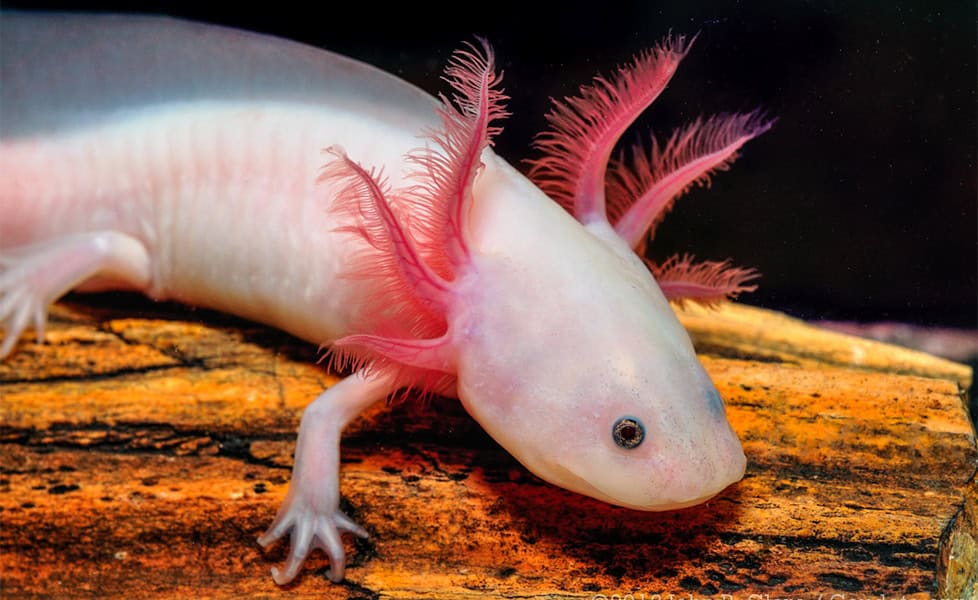The Judicial Investigation Agency (OIJ), through its Specialized Section Against Environmental Crimes, carried out an operation at a store in Vázquez de Coronado, San José, where several wild animal species allegedly offered for sale were discovered.
During the raid, agents recovered two specimens of the Mexican salamander (Ambystoma mexicanum), a critically endangered amphibian according to the Red List of the International Union for Conservation of Nature (IUCN). Native to Mexico, the species has experienced a drastic population decline due to habitat loss, pollution, the presence of invasive species, and illegal exploitation.
“In addition to the salamanders, eleven turtles were seized at the site, which were also under illegal possession, according to preliminary determinations by the authorities,” stated the Judicial Police. All of the animals were transferred to a Wildlife Refuge, a center authorized by the National System of Conservation Areas (SINAC), where they will receive appropriate care and rehabilitation.
Wildlife Trafficking: Devastating Consequences
This case highlights a growing global issue: wildlife trafficking, a criminal activity involving the illegal trade of flora, fauna, and animal products, such as rhinoceros horns, either nationally or across borders. These living beings are removed from their ecosystems for profit, often as exotic pets or collectors’ items. This activity includes smuggling, illegal collection, capture, and hunting.
“Usually, these are animals that are in danger of extinction, because people want animals that are not common; therefore, scarce populations,” explains Dr. Gilbert Alvarado, professor and researcher at the School of Biology of the University of Costa Rica (UCR).
According to the World Wildlife Fund (WWF), wildlife trafficking ranks among the most profitable criminal activities in the world, comparable to drug and arms trafficking. In Costa Rica, the number of complaints related to the illegal trade, trafficking, and transport of wild animals has increased sharply in recent years. According to the Environmental Prosecutor’s Office, 156 complaints were recorded in 2019. That number rose to 253 in 2020 and reached 364 in 2021.
The illegal trafficking of wild animal species has far-reaching impacts. Among them is the loss of biodiversity and the destruction of natural habitats, which can lead to the extinction of many species.
Additionally, this activity often introduces invasive species, which are non-native animals that must adapt to foreign ecosystems. According to biologist Federico Bolaños, these invasive species can displace or compete with native wildlife, altering ecological balances and threatening local biodiversity.
Costa Rica, known for its rich natural heritage, continues to confront the growing challenge of wildlife crime. Authorities stress the importance of public awareness, enforcement, and conservation efforts to protect the country’s ecosystems and endangered species from illegal exploitation.






